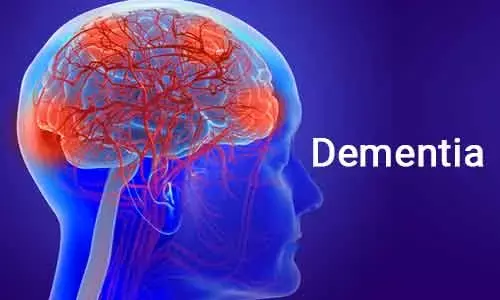- Home
- Medical news & Guidelines
- Anesthesiology
- Cardiology and CTVS
- Critical Care
- Dentistry
- Dermatology
- Diabetes and Endocrinology
- ENT
- Gastroenterology
- Medicine
- Nephrology
- Neurology
- Obstretics-Gynaecology
- Oncology
- Ophthalmology
- Orthopaedics
- Pediatrics-Neonatology
- Psychiatry
- Pulmonology
- Radiology
- Surgery
- Urology
- Laboratory Medicine
- Diet
- Nursing
- Paramedical
- Physiotherapy
- Health news
- Fact Check
- Bone Health Fact Check
- Brain Health Fact Check
- Cancer Related Fact Check
- Child Care Fact Check
- Dental and oral health fact check
- Diabetes and metabolic health fact check
- Diet and Nutrition Fact Check
- Eye and ENT Care Fact Check
- Fitness fact check
- Gut health fact check
- Heart health fact check
- Kidney health fact check
- Medical education fact check
- Men's health fact check
- Respiratory fact check
- Skin and hair care fact check
- Vaccine and Immunization fact check
- Women's health fact check
- AYUSH
- State News
- Andaman and Nicobar Islands
- Andhra Pradesh
- Arunachal Pradesh
- Assam
- Bihar
- Chandigarh
- Chattisgarh
- Dadra and Nagar Haveli
- Daman and Diu
- Delhi
- Goa
- Gujarat
- Haryana
- Himachal Pradesh
- Jammu & Kashmir
- Jharkhand
- Karnataka
- Kerala
- Ladakh
- Lakshadweep
- Madhya Pradesh
- Maharashtra
- Manipur
- Meghalaya
- Mizoram
- Nagaland
- Odisha
- Puducherry
- Punjab
- Rajasthan
- Sikkim
- Tamil Nadu
- Telangana
- Tripura
- Uttar Pradesh
- Uttrakhand
- West Bengal
- Medical Education
- Industry
Hearing, visual impairments linked to elevated dementia risk

Washington- Researchers have found that older adults with both hearing and visual impairments--or dual sensory impairment--had a significantly higher risk for dementia.
The study, published in the journal Alzheimer's & Dementia: Diagnosis, Assessment & Disease Monitoring, said that hearing and vision loss are independently associated with dementia, but the impact of dual sensory impairment on dementia risk is not well understood.
"Evaluation of vision and hearing in older adults may predict who will develop dementia and Alzheimer's," said study lead author Phillip H Hwang from the University of Washington in the US.
"This has important implications on identifying potential participants in prevention trials for Alzheimer's disease, as well as whether treatments for vision and hearing loss can modify risk for dementia," Hwang added.
In the study of 2,051 older adults (22.8 per cent with hearing or visual impairment and 5.1 per cent with both impairments) who were followed over eight years, dual sensory impairment was associated with an 86 per cent higher risk for dementia compared with having no sensory impairments.
During follow-up, dementia developed in 14.3 per cent in those with no sensory impairments, 16.9 per cent in those with one sensory impairment, and 28.8 per cent in those with dual sensory impairment.
The findings showed that participants with dual sensory impairment were also twice as likely to develop Alzheimer's disease (the most common form of dementia) than those without sensory impairments.
"Dual sensory impairment was independently and strongly associated with an increased risk of allacause dementia and Alzheimer's disease," the study author wrote.
The researchers noted that further research is needed to characterise the exact role of sensory impairments and whether treatments that improve sensory function, such as surgery or sensory aids, devices, and prostheses, can modify this risk.
Medical Dialogues Bureau consists of a team of passionate medical/scientific writers, led by doctors and healthcare researchers. Our team efforts to bring you updated and timely news about the important happenings of the medical and healthcare sector. Our editorial team can be reached at editorial@medicaldialogues.in.
Dr Kamal Kant Kohli-MBBS, DTCD- a chest specialist with more than 30 years of practice and a flair for writing clinical articles, Dr Kamal Kant Kohli joined Medical Dialogues as a Chief Editor of Medical News. Besides writing articles, as an editor, he proofreads and verifies all the medical content published on Medical Dialogues including those coming from journals, studies,medical conferences,guidelines etc. Email: drkohli@medicaldialogues.in. Contact no. 011-43720751


